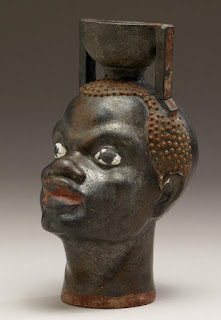Greek Institute Conducted Survey in Skopje about Athens’ Influence on the Balkans
Athens cannot allow the degradation of Greek foreign policy on the Balkans in the upcoming years. Although the image of the Western Balkan country has suffered a great deal due to the economic crisis, the losses are not big, concludes an analysis of the effects of the financial crisis on Greece’s foreign policy on the Balkans, published recently by Greek foreign policy foundation ELIAMEP.
The esteemed Greek institute carried out telephone and online survey of experts on Greek foreign policy in several Western Balkan countries, including Macedonia, in order to find out whether the crisis had changed Greece’s image in the region.
The authors of the study analyze Athens’ role before and after the financial crisis.
Without providing the names of the respondents, ELIAMEP’s report stresses that journalists, representatives of the NGO sector and businessmen in the period between July 15 and September 15 responded to ten questions. It is interesting to note that the authors do not hide the fact that the specimen was not sufficiently representative because the people who participated in the survey were chosen from the foundation’s database, on the grounds of their knowledge of Greek matters and relations.
The study underlines that Greece’s policy and its diplomatic presence in Southeast Europe in the past several years are marked by many fluctuations. Greece’s foreign policy is sometimes used more as an internal mechanism than as a promotion of the country’s interests in the region, academicians, diplomats and journalists who took part in the survey said.
The crown of Greece’s policy in the region, following the dissolution of Yugoslavia, is the Greek presidency of the European Union in 2003 when the Thessaloniki Agenda was adopted.
The Macedonian-Greek border at the peak of the summer season. Photo: Tose Ognjanov
"As of 2008, when Greece sank in a difficult economic crisis, the Greek foreign policy became introvert, with the exception of the energy sector," the report says.
However, when it comes to the question whether the crisis had a negative impact over Greek policy in the Balkans, a third of the respondents in the region preferred to categorize it as neutral, while the majority, or 53%, said they believed it influenced the country’s image negatively.
Around 40% of the respondents took up a neutral stance when asked about Greece’s importance in terms of the Europeanisation of the Balkans in the period 2000-2008. It is peculiar the fact that the percentage of respondents who gave a negative answer was bigger, especially due to the fact that the Thessaloniki Agenda was adopted in this period. The study authors explain that occurrence with the argument that the question covers a wider period, while the Thessaloniki Agenda refers only to 2003.
The second explanation is that Greece did not have the right to support the efforts of the countries of the region to join the EU, while other countries, such as Austria, played an active role.
The majority of the respondents agreed that Greece’s role was overestimated in the same period, while 45. 7% or 38 respondents stand somewhere in the middle of the scale. The explanation of the Greek analysts is that public diplomacy in Greece is not efficient.
The analysis also said that initiatives made on bilateral level show that the diplomatic activity between Athens and the countries from the region has reduced.
The average number of the agreements reached in the period 2000-2007 was 169, while in the period 2008-2013 the number of those agreements fell to 58. The bulk of the respondents confirmed that the economic crisis was covered by the media, with more than 52% being convinced that the reports were negative. Over 41% of the respondents said the crisis created a negative perception of the EU as well.
Last year, the Greek ELIAMEP foundation published an analysis in which it said that the European Commission led by Stefan Fule wants to exert pressure to start the accession negotiations with Macedonia, without making the solution to the name issue a condition.




